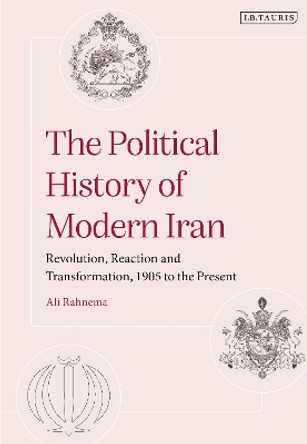Description
How did the Shah of Iran become a modern despot?
In 1953, Iranian monarch Mohammad-Reza Shah Pahlavi emerged victorious from a power struggle with his prime minister, Mohammad Mosaddeq, thanks to a coup masterminded by Britain and the United States. Mosaddeq believed the Shah should reign not rule, but the Shah was determined that no one would make him a mere symbol.
In this meticulous political history, Ali Rahnema details Iran's slow transition from constitutional to despotic monarchy. He examines the tug of war between the Shah, his political opposition, a nation in search of greater liberty, and successive US administrations with their changing priorities. He shows how the Shah gradually assumed control over the legislature, the judiciary, the executive, and the media, and clamped down on his opponents' activities.
By 1968, the Shah's turn to despotism was complete. The consequences would be far-reaching.
The Shah's gradual transition to dictatorship after the 1953 coup in Iran, and its far-reaching consequences
About the Author
Ali Rahnema is Professor of Economics at the American University of Paris. He is the author of An Islamic Utopian: A Political Biography of Ali Shari'ati, Behind the 1953 Coup in Iran and Call to Arms: Iran's Marxist Revolutionaries, which is also published by Oneworld.
Reviews
'As creative and sensitive in his interpretations as he is meticulous in his research, Rahnema offers a forensic analysis of the history of the last shah of Iran's drift into dictatorship, guiding us skilfully through Iran's political history, from the aftermath of the 1953 royalist coup d'etat to the shah's triumphant, Napoleonic coronation ceremony in 1968. Chronicles of the late monarch's steady consolidation of power in his own hands and the stifling of dissent are now legion, of course. But rarely has detail been marshalled so effectively in demonstrating these points... Rahnema has written an important and insightful treatment of Iranian political history in the 1950s and 1960s, a period that is often glossed over superficially in the rush to connect the 1953 coup to the shah's autocracy in the 1970s, but which actually marks a critical moment of transition for Iran.'
* International Journal of Middle East Studies *'A brilliant history of late Pahlavi Iran and the fatal entanglements of the shah, the opposition and the United States.' * Stephanie Cronin, Elahe Omidyar Mir-Djalali Research Fellow, University of Oxford *
'Richly detailed yet exceedingly accessible... The significant insights Rahnema offers into Mohammad Reza Shah's rise and political trajectory make the book an important read for students not just of modern Iran but of despotic politics more broadly.'
* Ali Mirsepassi, Albert Gallatin Research Excellence Professor, New York University *Book Information
ISBN 9780861541423
Author Ali Rahnema
Format Hardback
Page Count 528
Imprint Oneworld Academic
Publisher Oneworld Publications
Dimensions(mm) 234mm * 153mm * 43mm







